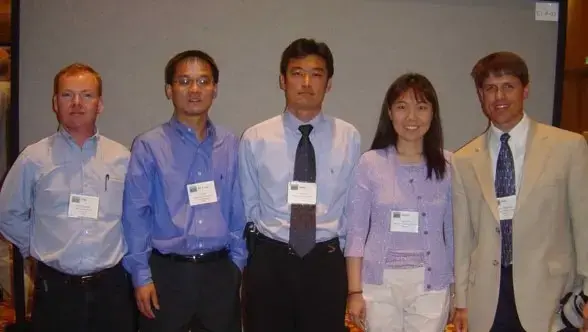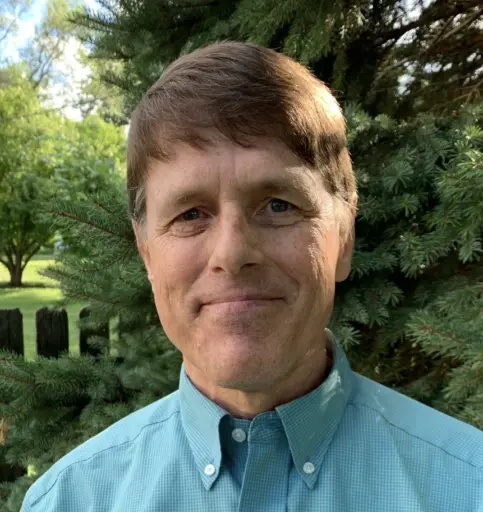
Professor John Pfotenhauer is retiring in Spring 2023 after spending nearly 40 years of his career at UW-Madison. He took the time to reflect on the span of his experience with students and colleagues. Thank you to John for everything you’ve contributed to our students and the engineering community around the world!
What are some of the highlights from your career here at UW-Madison? You started as a post-doc and worked as scientist for 9 years before joining the Mechanical Engineering (ME) Department.
That’s right, I was hired as a post-doc in the Applied Superconductivity Center in 1984. Just before taking up a position as Assistant Professor with a joint appointment in ME and EP (then NEEP), I completed the successful test for the Superconducting Magnetic Energy Storage (SMES) program of a conductor that carried 75 kA, was cooled in a bath of liquid helium at 1.85K and operated in a magnetic field of approximately 2 tesla. With the recent growth of intermittent energy generation such as wind and solar, there is a renewed push for energy storage. SMES is still a viable option being pursued in various groups around the world.
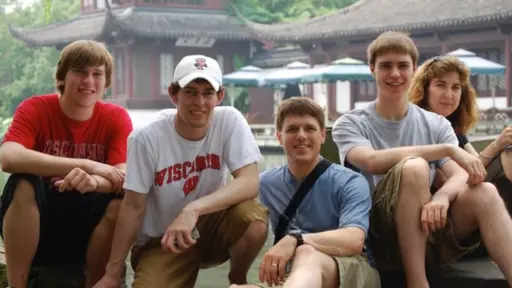
One of the most enjoyable highlights of my years as a Professor in ME has been leading the 8-week summer program in China. We started the program in 2008 and ran it every year until COVID shut things down in 2020, but we are hoping to revive it in the summer of 2024. The program utilizes two professors, one each from the ME Department and the EPD program and takes approximately 20 UW-Madison undergraduate engineering students to Zhejiang University in Hangzhou, China. During the 8 weeks, the students complete two of their required courses, taught by the UW-Madison professors AND they can interact with/experience the modern Chinese culture.
Another highlight that comes to mind are the late Friday afternoon lab sessions for my course on Vacuum Technology (ME777). All the graduate students in the course loved the hands-on activity at the very end of the week, and I would frequently have to shoo them out the door after the class time had expired. This course is a great melding of significant theoretical foundations and practical know-how. We have set plans in place to have it continue after my retirement, and I very much hope those plans succeed.
A highlight from my publication output is the book on Miniature Joule-Thomson Cryocooling. It represents a 10-year effort on my part to translate the Hebrew/broken-English version provided to me by my colleague Dr. BenZion Maytal into readable English. The product is a high-quality piece of work, and I learned a great amount of related theory and practice through the process.
I was privileged to serve for 10 years as the chair of the graduate committee in our department. During that time, we initiated the Visit-Wisconsin grad-student recruitment event, re-vamped the graduate student handbook, and scrutinized many grad student applications. However, my favorite memory from the responsibility is of introducing the new Assistant Professors to many of the department’s processes and procedures, and brainstorming with them for improvements to the same.
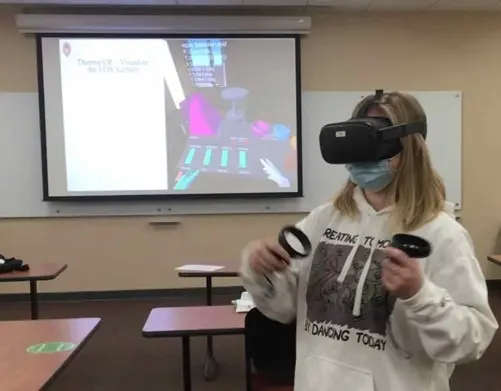
UW-Madison provides an amazing number of possibilities for fascinating collaborations. Certainly, one of my most enjoyable collaborations has been with colleagues in DoIT’s Engage Program and the Wisconsin Center for Education Research (WCER) developing educational games and simulators to enhance learning. A game we created called ‘Cool-it’ provided a fun and inductive learning experience in my ME 566 Cryogenics course. A virtual reality simulator which we have named ‘ThermoVR’ is presently forming the basis of an NSF-sponsored project to help undergraduates in multiple US universities grasp key concepts in their introductory course on thermodynamics.
What are you going to miss?
The energy of the students in the ME 370 lab course. It is such a fun course to teach for multiple reasons, but one of the most significant is because you get to observe many ‘light-bulb’ or ‘aha’ moments. These occur as the students revisit concepts they previously encountered as homework problems in their thermodynamics, heat transfer, or fluid dynamics courses, but that now appear while they are operating a piece of equipment such as a gas turbine, air compressor, or refrigeration cycle. The concepts come to life and the students clearly enjoy the hands-on learning.
What are you most proud of?
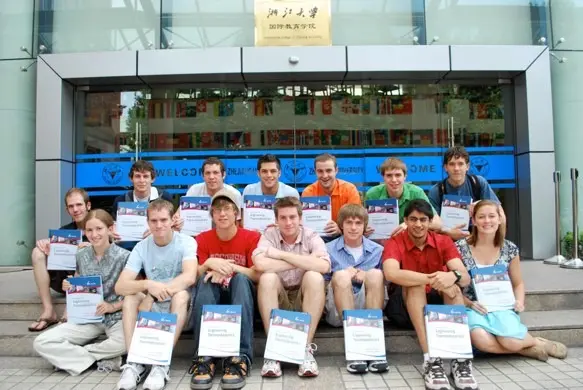
Establishing the China summer program for UW-Madison undergraduate students in the College of Engineering. This has been of enormous benefit for both the students and the instructors. We have established lasting friendships, broadened our understanding of how engineering happens around the world, and increased our perspective of the kind of work that can be accomplished when we bring our students together. Additionally, our shared experiences and frequent communication have built mutual understanding and strong relations between us and our Chinese colleagues. A few quotes from our students reflect the same sentiments:
… spending time here in China has definitely opened my eyes to international relationships and has provided me with some tools to be successful with dealing with various groups of people. I loved every moment of being here, and greatly appreciate the experience!
I will never forget my time in Hangzhou. It will continue to affect me for the rest of my life.
This study abroad trip has been one of the best decisions of my life . . . . I can already tell I’m going to miss this special place.
Do you have some parting advice for students and colleagues?
For students: Aim for excellence, and don’t be afraid of making mistakes (this is called learning). Garrison Keeler once said, “The road to smart goes through dumb.” You must ask questions and sometimes make mistakes in order to learn. Aim for excellence. You will need to keep it in tension with your own limitations. It’s good to know your strengths and be mindful of your limitations, but equally good to aim for excellence. Be sure to incorporate fun into your endeavors.
For my colleagues, I am borrowing a story from an unknown author:
A group of alumni, highly established in their careers got together to visit their old college professor. Conversation soon turned to complaints about stress in work and life. Offering his guests coffee, the professor went to the kitchen and returned with a large pot of coffee and an assortment of cups: porcelain, plastic, glass, crystal, some plain looking, some expensive, some exquisite. He told his guests to help themselves to the coffee.
After everyone had a cup of coffee in hand, the professor said: If you noticed … all the nice-looking expensive cups have been taken up, leaving behind the plain and cheap ones. While it is normal for you to want only the best for yourselves, that is the source of your problems and stress. Be assured that the cup adds no quality to the coffee. In most cases, it’s just more expensive, and in some cases even hides what we drink. What all of you really wanted was coffee, not the cup. But you consciously went for the best cups, and then you began eyeing each other’s cup.
Now consider this … Life is the coffee. The jobs, money and position in society are the cups. They are just tools to hold and contain LIFE. And the type of cup we have does not define nor change the quality of life we live. Sometimes, by concentrating only on the cup, we fail to enjoy the coffee. Savor the coffee, not the cup. The happiest people don’t have the best of everything. They just make the best of everything. Live simply, speak kindly, care deeply, love generously. The richest person is not the one who has the most, but the one who needs the least.
Life is like coffee – author unknown.
What are your plans for retirement?
The job of a professor is very consuming. Although many of us maintain other activities outside of our work, they never receive as much attention as we would like to give them. As a side note and example: Previously, each year when mid-May came around, I felt like a horse being let out of the starting blocks – having the entire summer to give my attention to research activities. I enjoy teaching very much, but it also is a very consuming responsibility. Thus, when the summer came along, the change of focus was always refreshing. In the same way, I am looking forward to a change of focus, but will be continuing many activities in which I have already been involved. These will include traveling both across the states (in our campervan) and overseas, learning Mandarin, practicing my Dobro in our bluegrass band, and tending to lots of projects in my home and yard. I also expect to devote more time to my activities in the church we attend such as teaching and working with the international student ministry. Other possibilities on the list are volunteering my time to fix bicycles, setting up a woodshop, and building a second cabin at our property up in the BWCA. Did I mention spending time with our grandchildren?
Reflecting on this list of activities, I am unsure whether I will be able to fit them all in, but I am sure I will enjoy trying.
Featured image: First four graduate students: Phil Blumenfeld, Jie Yuan, Jong Baik, Jinglei Shi, and Prof. Pfotenhauer
